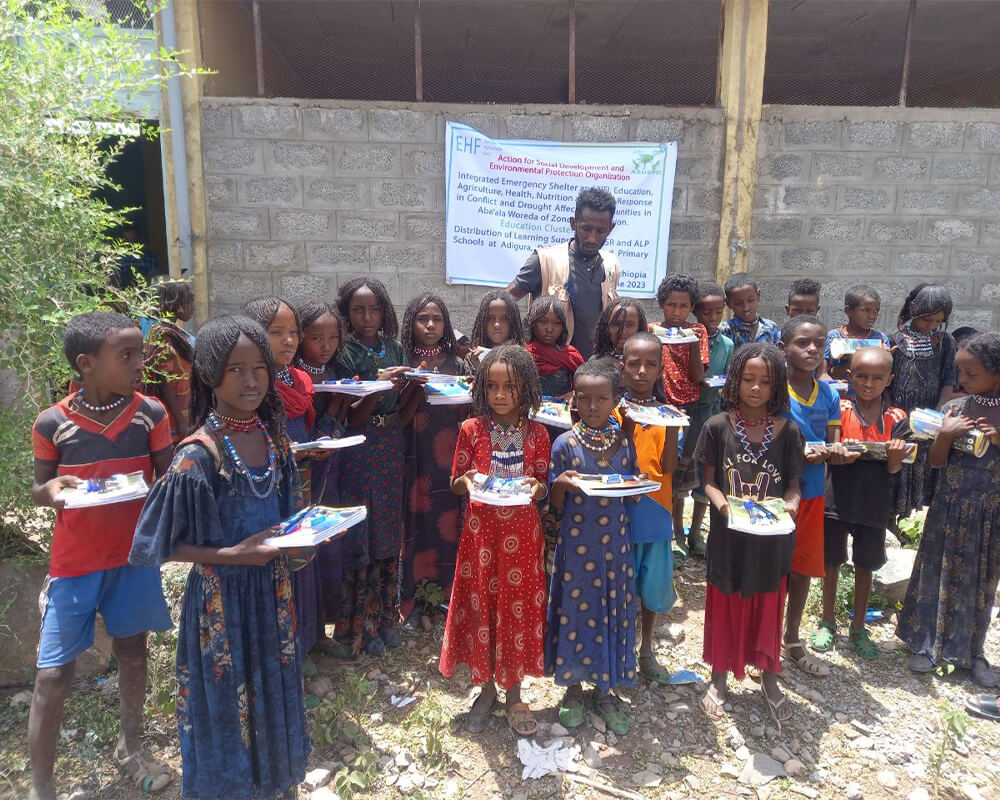Action for Social Development
and Enviromental Protection
Organization (ASDEPO)
Education is the socially organized and regulated process
E ducation is the socially organized and regulated process of continuous transference of socially significant experience from previous to following generations. The main way to receive an education is to take a course of training in the system of educational institutions “.
Education is the deliberate, systematic, and sustained effort to transmit, provoke or acquire knowledge, values, attitudes, skills or sensibilities as well as any learning that results from the effort (Cremin, Public Education)
ASDEPO In Education
Ethiopia is the second-most populous country in Africa after Nigeria with a population of 105 million. It’s also one of the least developed countries (LDCs) in the world, ranked 173rd among 189 countries on the United Nations’ Human Development Index. Like other low-income countries in Africa, Ethiopia presently faces the enormous challenge of creating a more inclusive and efficient education system amid rapid population growth. Compared with other sub-Saharan African countriesDespite Ethiopia’s booming economy, the country’s education system remains underdeveloped and plagued by low participation rates and quality problems—a situation partially owed to Ethiopia having been deprived of economic development for decades. As the World Bank has noted, Ethiopia was “one of the most educationally disadvantaged countries in the world” for much of the 20th century, because of armed conflict, famines, and humanitarian crises.
Interesting Projects
ASDEPO has been carrying out more on various education initiatives
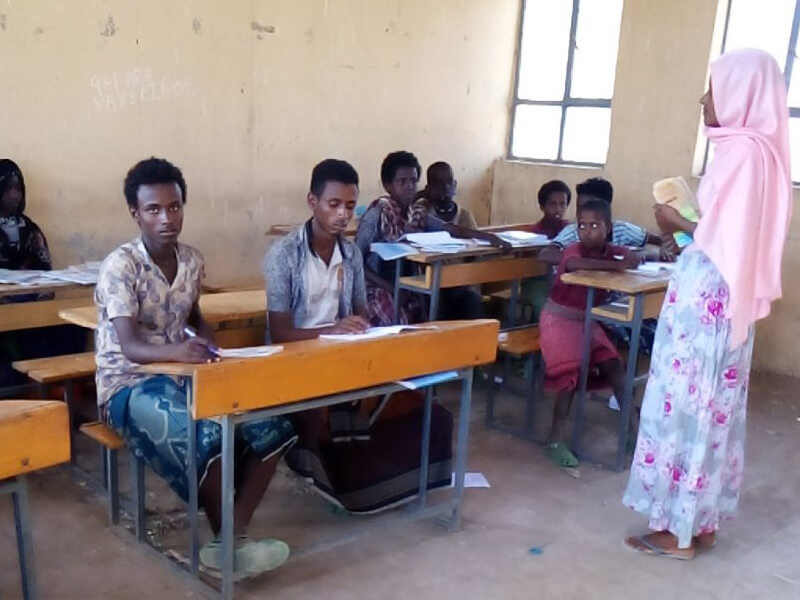
01
Education Time
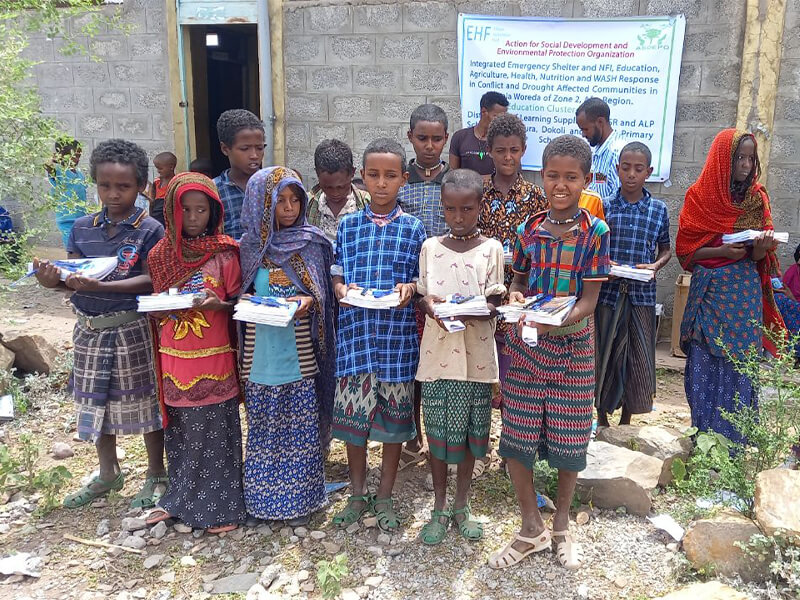
02
Receiving Educational Tools
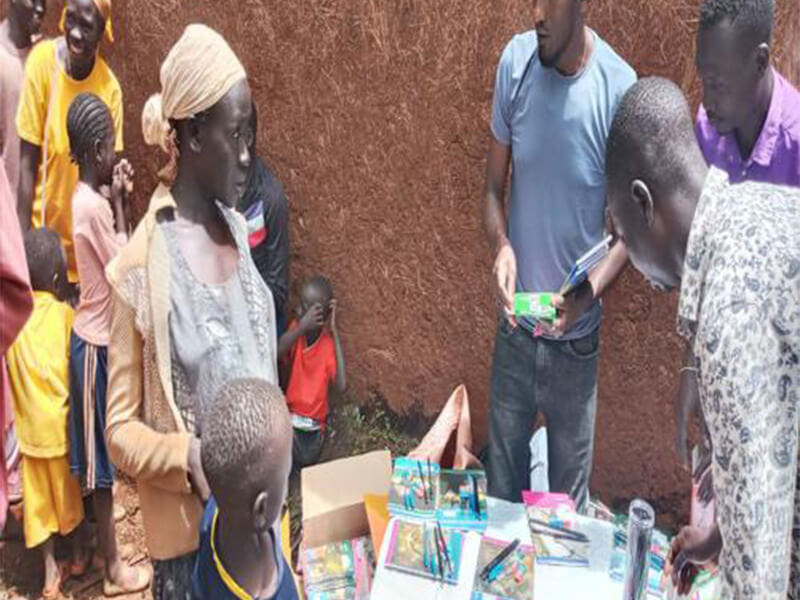
03
Receiving Educational Tools
Previous
Next
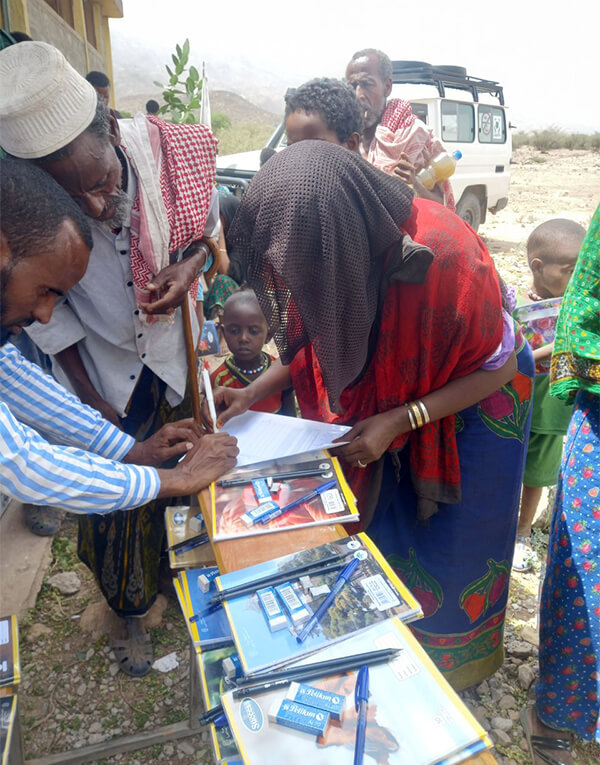

According to UNICEF report in 2019 about Ethiopia’s Education in Emergencies, There are currently 1.7 million displaced children in Ethiopia; most are of school-age (approximately 1.39 million) and require educational services. The sheer numbers of IDP children and adolescents have overwhelmed efforts to provide for their schooling, as their situation leads to further strain on already overstretched host education systems. Providing education is necessary to deliver early peace dividends and a return to normalcy for children. However, few of the temporary settlement sites provide education services, with less than 50 per cent of children accessing education in 417 of 965 IDP sites. To continue their education, many children have been attending school in host communities which often overwhelms local schools as they are unable to support the sudden influx of students. Furthermore, approximately 62 per cent of IDP children are in camps located a considerable distance from the host schools (over 1 km) and therefore encounter more challenges in accessing educational opportunities.
Education
ASDEPO is working on educational projects
Since 2016, ASDEPO has been carrying out more than five education initiatives. Before the organization has begun to implement a project, it has been assisting several woredas through looking for sources of funding both inside and outside the organization with the help of the woreda office.
ASDEPO has currently providing an Emergency Education in Kamashi, Sedal and Miyziga Woredas of Kamashi Zone Benishangul Gumuz Regional State with the Donation of UNOCHA-EHF with a total budget of 300,000 USD.
The Overall objective of the project is to provide emergency education for affected school-age children (age 5-14) in Kamashi, Miyziga and Sedal Woredas of Kamashi Zone of BGR from 01/03/2022-30/11/2022 for targeted 12,000 crisis affected children.
